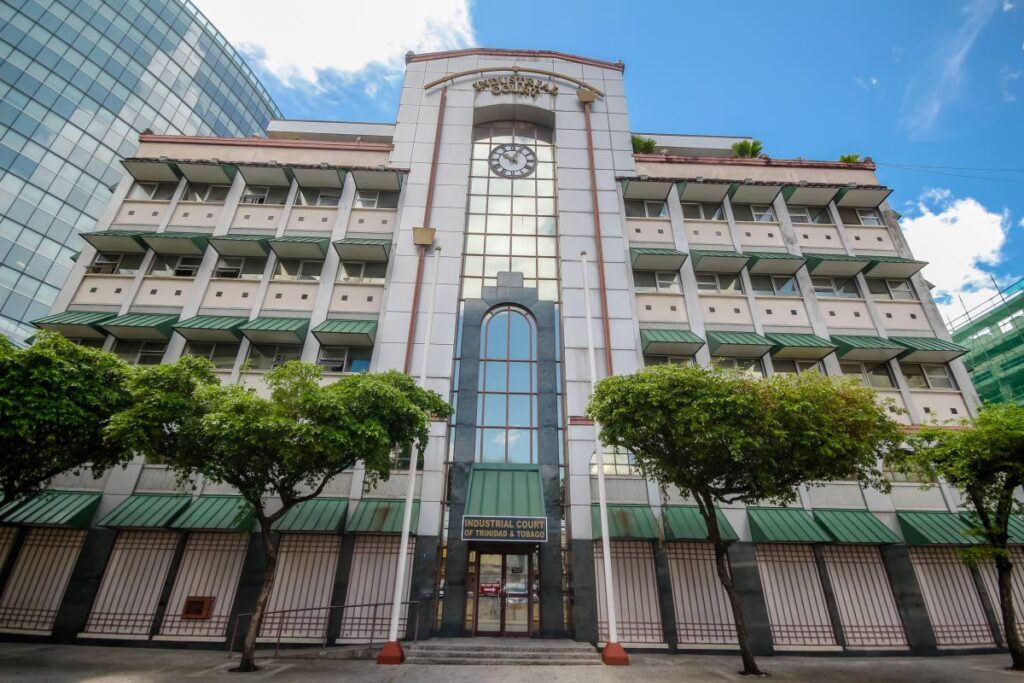Mayday: Industrial relations and attorneys

As the number of UWI law graduates increases year by year, past the available vacancies in legal firms to accommodate them, more and more attorneys become available to human resource departments in commercial and industrial corporations.
Those who have built up expertise in civil and criminal law and the special field of human rights are worthy of international employment and often head that way.
Looking through the curricula of the University’s Law Faculty and the Hugh Wooding Law School, however, I realised why the Industrial Court can be such a challenge for our very well-educated graduate attorneys.
Back in the day, all legal aspirants had to have a working knowledge of both Latin and Greek. That is no longer necessary unless you are faced with the need to research a preliminary point such as "Omnia Praesumentur rite esse acta", which may and often has made the difference between winning and losing a case.
Most graduate lawyers can figure out what that means by working through the context, but one of the problems involves the reason why the Industrial Court was established in the first place.
Back in 1972, when, as in most countries moving away from colonialism to self-rule or independence, Trinidad was in turmoil, there was almost a formula that was followed by those looking to take over power upon a change in political structure. It usually started with civic unrest due to people’s resentment against restrictive colonial laws.
When that alone did not bring about "liberation", the resentment moved to pressure by frustrated citizens to organisation of industrial action: strikes and lockouts, which often led to violence.
Most political parties allied themselves with one trade union or another and, based on socialist beliefs, pursued the only path internationally such groups had available that would give them the power to enact social and political change.
The government of the time knew the formula and was determined to hobble the unrest by stopping the political, hence the civil, hence the industrial unrest.
They researched legislation from other Commonwealth countries where similar events had taken place and introduced the Industrial Relations Act, which established the Industrial Court. It worked at first.
Strikes were forbidden by law.
The workers saw it as another legal restriction by a different name.
There was one lockout in a garment factory that defied the striking union members by locking them all out of the factory. Workers lost their jobs and were not paid. It went on for two years.
Eventually, the factory closed down. Competing factories took over. One strike led to seven, which led to twelve.
The government in power led by Dr Williams was not going to allow his government, with the infant but burgeoning economy, to be destroyed and changed the labour law from the Industrial Stabilisation Act to today’s Industrial Relations Act.
Strikes were again made legal, but only after a genuine effort had been made to sort out the dispute, giving rise to the strike or lockout action. Unauthorised strikes and lockouts where no such genuine procedures via conciliation efforts by the Ministry of Labour and the court were and still are illegal.
One of the intentions of the new act was to allow trade union shop stewards and supervisors and managers in small and medium-sized (SME) companies, especially those who were involved in disputes themselves, to present their own sides of the events giving rise to the disputes, to present their perception themselves, or on behalf the worker or managers involved.
The aggrieved had the right to give their side of the story, and it was the court that would decide what was fair and in accordance with good industrial relations.
That has changed and those companies and the larger trade unions with "deep pockets" now hire the top attorneys in the land not to be judges but to represent their clients’ cases. SMEs that cannot afford legal fees– which grow in magnitude each year as the cost of living goes up – cannot compete against senior council usually but do not always lose.
SMEs human resource managers, ordinary supervisors, and union shop stewards are no longer expected to know what an "ex -parte" injunction, a "writ of ceretorari" means or even "functus officio."
The latter is an actual term used by the court in TD 340 0f 2022 between Communication Workers Union and Caribbean Glass Specialists Ltd in identifying the case itself, as is: "Omnia Praesumuntur ritr esse acta", which means, that anyone presenting a case before the court (if anyone wants to know, just in case you need it) must have clean hands or, in other words, a clean record themselves, and a clean conscience.
In this judgment, it may be worth noting that both parties were represented by attorneys at law.
And it is evident that the original intention of the court, that the wisdom of its judges must be accessible to the man liming in Independence Square or on the San Fernando bus, has evolved.
There are other "laws" such as the law of retaliation/reprisal or retribution, the law of parity and even a referral to a "per curiam decision" by another court that may be useful for those who cannot afford legal fees.


Comments
"Mayday: Industrial relations and attorneys"